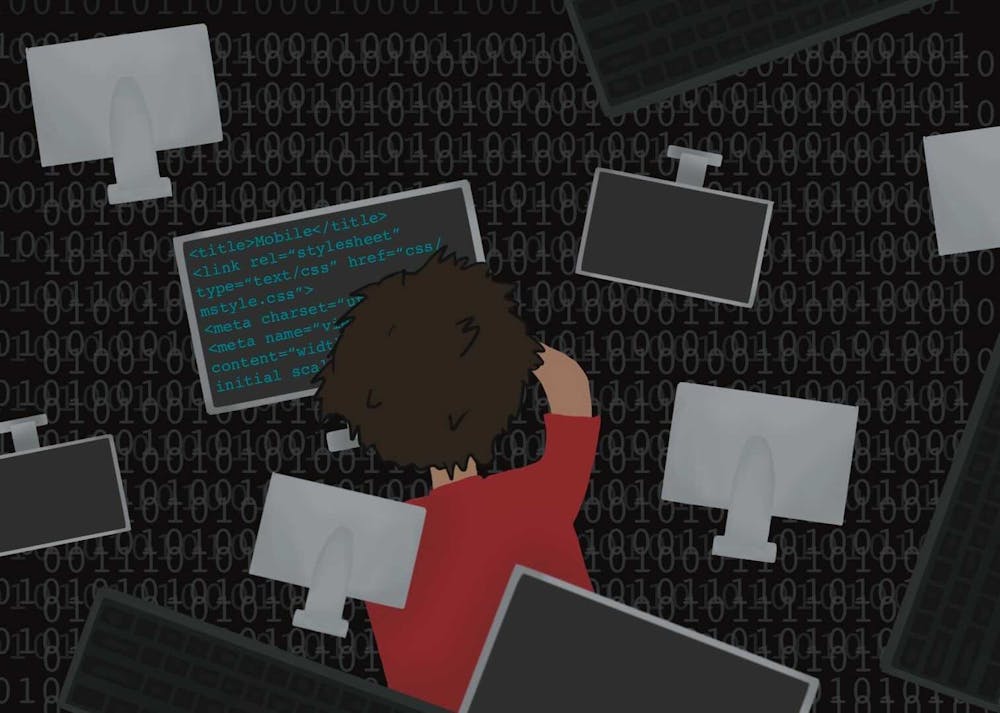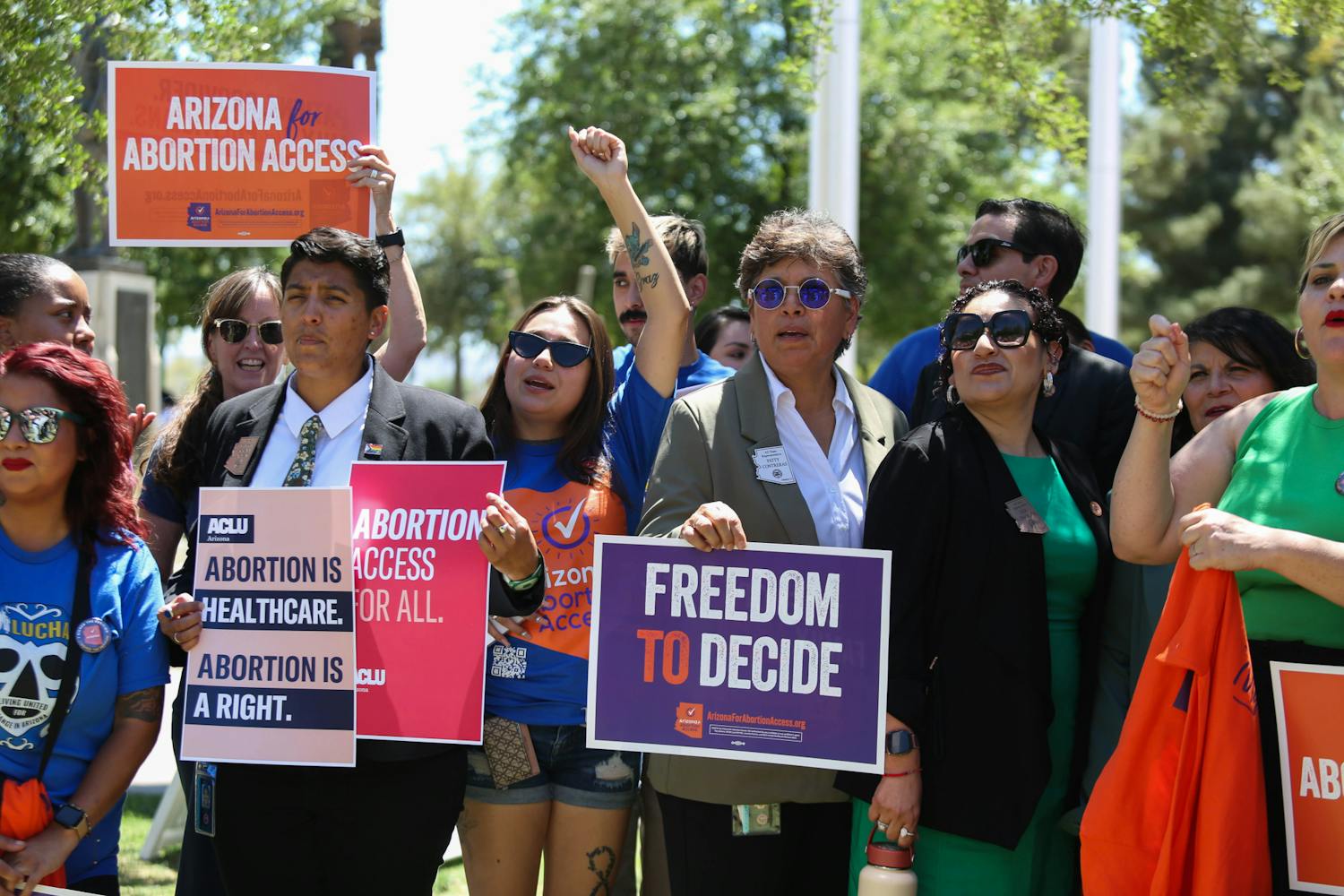Coding for Social Good, a 15-week course offered by the Watts College of Public Service and Community Solutions, gives students the opportunity to develop solutions to different social issues by designing apps. One such app, PeriAid, aims to provide menstrual products to people experiencing homelessness.
The app was created by a team of students from a Spring 2021 section of the class made up of Alex Mavrikos, Claire Wallentine Milius, Jesus Vega, Sao Thuong Dang and Xochitl Mora Gamez. It was designed to supply those in need with menstrual products through specifically designed databases and programs built into the app.
The course that made the app possible, taught by co-instructors Chris Hayter and Bailey Borman, teaches students how to research, analyze and design solutions for issues affecting the Arizona community. During the semester, students work on a project to develop an app and nonprofit organization to accompany it.
"My biggest goal is for students to feel like they can take risks, to do something that they haven’t tried before and to maybe confront their beliefs that are often cultivated within our disciplines of what we can and cannot do," said Borman, who is director of strategic projects and initiatives at Watts College.
The PeriAid team decided that period poverty was the issue it wanted to focus on while addressing the broader topic of homelessness in the class. After collaborating the whole semester, the team was given the opportunity to continue to build its nonprofit during the summer though an internship as part of Apple's Community Education Initiative (CEI) .
The app, which is still in its initial stages of development, was designed to work by connecting donors and organizations with people in need of menstrual products.
The "menstruator portal" allows individuals who qualify to search for organizations through databases to have access to products near them. The "donor portal" allows users to learn more about period poverty through different educational videos and articles while providing them with resources on where they can volunteer their time or donate money or products. The "organization portal" allows different authenticated users to send notifications to donors or menstruators, who have favorited their organization, about news regarding things like inventory updates.
"This course really brought out a new talent in me that I did not know I have," said Mora Gamez, a junior studying elementary education. "I never thought I could be able to be tech-savvy, but at one point my group was looking for someone to design the prototype. I went in and said 'I’d do it' and started playing around with it. I found out that design was actually something I’m very passionate about, and it has led me to a lot of opportunities."
ASU was presented with the opportunity to partner with Apple’s CEI last fall. According to Hayter, he and Borman were both approached individually in October 2020 by Cynthia Lietz, interim dean of Watts College.
They were offered the chance to create a course specific to the requirements set in place by the University Technology Office and Apple's CEI.
"I like that kind of challenge, and we both agreed we could create something for the following semester,” said Hayter, who is an associate professor in the School of Public Affairs.
In the course, students utilize the program Swift, a simple coding language that is specific to Apple and its apps. In addition to being a unique coding language, the program was designed to teach students the basics of coding.
As students begin the course, the teams are given different tasks to complete including assignments in the Swift coding program, research or interviews in the field and evaluating their peers.
In its first session as an online class in the Spring 2021 semester, students were split into groups to work together throughout the semester. For its inaugural semester, each team was given the topic of homelessness and had to narrow their focus on an issue they felt passionate about.
At the end of the course, all groups presented their projects to the class, a panel of key stakeholders and Apple representatives. After the presentation, one of the groups was offered the opportunity to continue pursuing its nonprofit.
Apple connected the group with a coding team to help it start making its app. During this time, groups can also start working on the paperwork and trademarking needed in order to become an official nonprofit.
Next semester, the course will be offered again with a different topic and the same opportunity for a group to develop its own app.
"I believe that so many people have great ideas, and that it can be really hard to put yourself out there and learn about things that you may feel uncomfortable doing," Borman said. "My whole goal of teaching classes like this one is to explore how could we all apply certain mindsets to address things that are awful in the world, but they don't have to be that way."
Reach the reporter at lkobley@asu.edu and follow @LKobley on Twitter.
Like The State Press on Facebook and follow @statepress on Twitter.
Continue supporting student journalism and donate to The State Press today.

Lauren Kobley is a reporter for the Community and Culture desk at The State Press. She has previously interned with the Fountain Hills Times.




